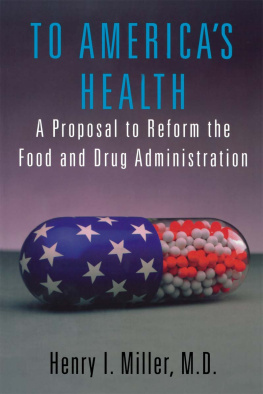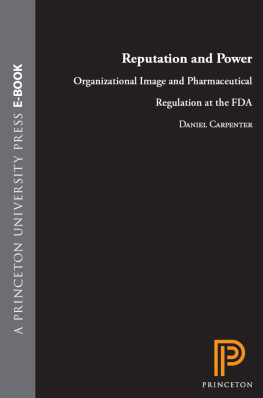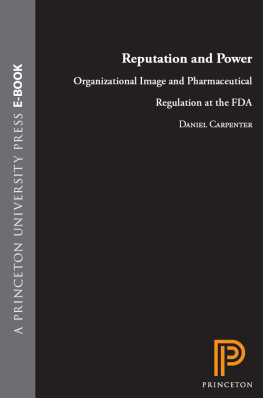The Hoover Institution on War, Revolution and Peace, founded at Stanford University in 1919 by Herbert Hoover, who went on to become the thirty-first president of the United States, is an interdisciplinary research center for advanced study on domestic and international affairs. The views expressed in its publications are entirely those of the authors and do not necessarily reflect the views of the staff, officers, or Board of Overseers of the Hoover Institution.
www.hoover.org
Hoover Institution Press Publication No. 482
Copyright 2000 by the Board of Trustees of the Leland Stanford Junior University
All rights reserved. No part of this publication may be reproduced, stored in a retrieval system, or transmitted in any form or by any means, electronic, mechanical, photocopying, recording, or otherwise, without written permission of the publisher.
First printing, 2000
06 05 04 03 02 01 00 9 8 7 6 5 4 3 2 1
Manufactured in the United States of America
The paper used in this publication meets the minimum requirements of American National Standard for Information SciencesPermanence of Paper for Printed Library Materials, ANSI Z39.48-1984.

Library of Congress Cataloging-in-Publication Data
Miller, Henry I.
To Americas health : a proposal to reform the Food and Drug Administration / Henry I. Miller.
p. cm. (Hoover Institution Press publication ; 482)
Includes bibliographical references and index.
ISBN 0-8179-9902-7 (pbk. : alk. paper)
1. Pharmaceutical policyUnited States. 2. United States. Food and Drug Administration. 3. DrugsLaw and legislationUnited States. 4. Pharmaceutical industryUnited States. I. Title. II. Series.
RA401.A3 M55 2000
353.9980973dc21
00-031937
Foreword
U nfettered markets can sometimes harm competitors and the general public as well. Examples include companies that dump their waste indiscriminately, polluting the environment, and those that create monopolies to restrict competition and boost prices to consumers.
Government regulation is often designed to counter these market imperfections. For example, the Environmental Protection Agencys regulation of SO2 emissions from coal-fired generating plants is designed to protect people from acid rain. Antitrust suits, such as the one brought by the Department of Justice against Microsoft, are designed to force industry giants to lower their prices and allow more competition. But regulations intended to improve on the performance of markets sometimes generate unintended or unexpected negative consequences. Consider, for instance, several cases involving natural resources. Restrictions on the ability of willing buyers and willing sellers of water to trade are having adverse impacts on salmon recovery in the Pacific Northwest. Environmentalists are often willing to pay to keep water in the stream for spawning habitat, but many states have laws that do not allow farmers to sell their water to these environmentalists. Another example is the Endangered Species Act, whose regulations are supposed to prevent people from taking species, a term interpreted to mean taking away their habitat. But regulations that prohibit landowners from harvesting timber if red-cockaded woodpeckers are found on their property have encouraged landowners to cut their timber before it gets old enough to attract woodpeckersan example of a worthy goal thwarted by distorted regulatory incentives. Hence, in North Carolina landowners with no known red-cockaded woodpecker colonies in the vicinity let their trees grow until they are about sixty years old, whereas landowners with abundant nearby colonies of the birds cut trees for pulp-wood when they are fifteen years old. Regulations on fishing are even more ridiculous. To prevent overharvesting of oysters, Maryland at one time institutionalized underproductivity by requiring that oyster dredges be towed behind sail-powered (as opposed to motor-powered) boats on all but two days of the week; this, of course, drastically limited the catch. Until recently the entire season for commercial halibut fishing in Alaska was two days. These measures might have helped to prevent overfishing, but they unnecessarily increased the costs of harvesting the catch.
Outside the natural resource arena, many other regulations are infamous for their unintended or costly consequences. Economists have documented damage to the airline and trucking industries from federal (nonsafety) regulations, which was reversed by deregulation. For example, before deregulation, intrastate moving rates, which were unregulated, were often nearly 50 percent less than (interstate) rates regulated by the Interstate Commerce Commission. The notoriously ineffective and expensive 1977 amendments to the Clean Air Act required power companies to install millions of dollars of equipment to scrub their emissions and increased the cost of electricity generation perhaps by as much $5 billion. But the air would have been cleaner and electricity costs lower if the companies had simply burned lower-sulphur coal. Thus, air pollutionwhat the new regulations were designed specifically to preventwas exacerbated by inflexible design standards prescribed by government.
Fortunately, the average U.S. citizen is wealthy enough that these inefficiencies are barely perceived. Or, as I often quip, we are lucky we are so rich or we could not afford all these efficiencies. Because each inefficiency has costs that are trivial compared to our gross domestic product (GDP), and because the costs are commonly widely distributed, there is often little pressure for change. To make matters worse, certain interest groups that benefit from the regulations fight to get them and to keep them in place. In the case of the emissions potentially subject to the Clean Air Act, for example, older power plants were grandfathered into the legislation, which meant they were exempt from the regulations. Not surprisingly the operators of those plants supported the regulations because they raised costs to competitors, and Eastern, high-sulphur coal interests supported regulations that discouraged the use of Western, low-sulphur coal. Businesses that know how to comply with complex regulations also prefer them because they act as a market-entry barrier, keeping out new entrants who would have a steep learning curve (and possibly huge expenses) to negotiate the regulatory maze. Finally, the bureaucrats who oversee regulations are unlikely to lobby for deregulation if it would mean eliminating their own jobs, limiting their advancement, or reducing their perquisites. In short, efficiency has no constituency. Even when it does, the burden is on the reformer to show that the regulations are worse than a freer market would be.
Enter Henry Miller and this volume,









